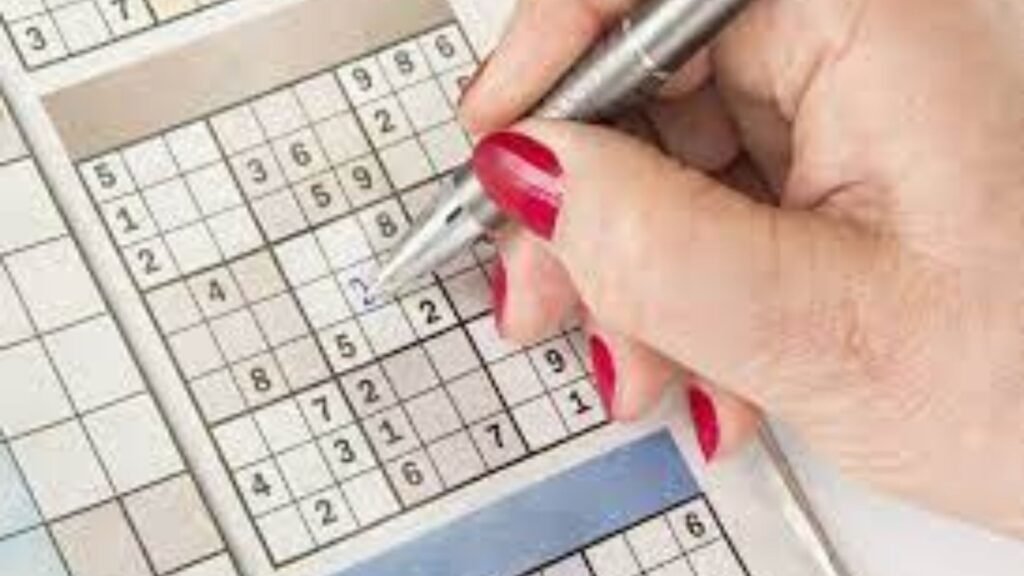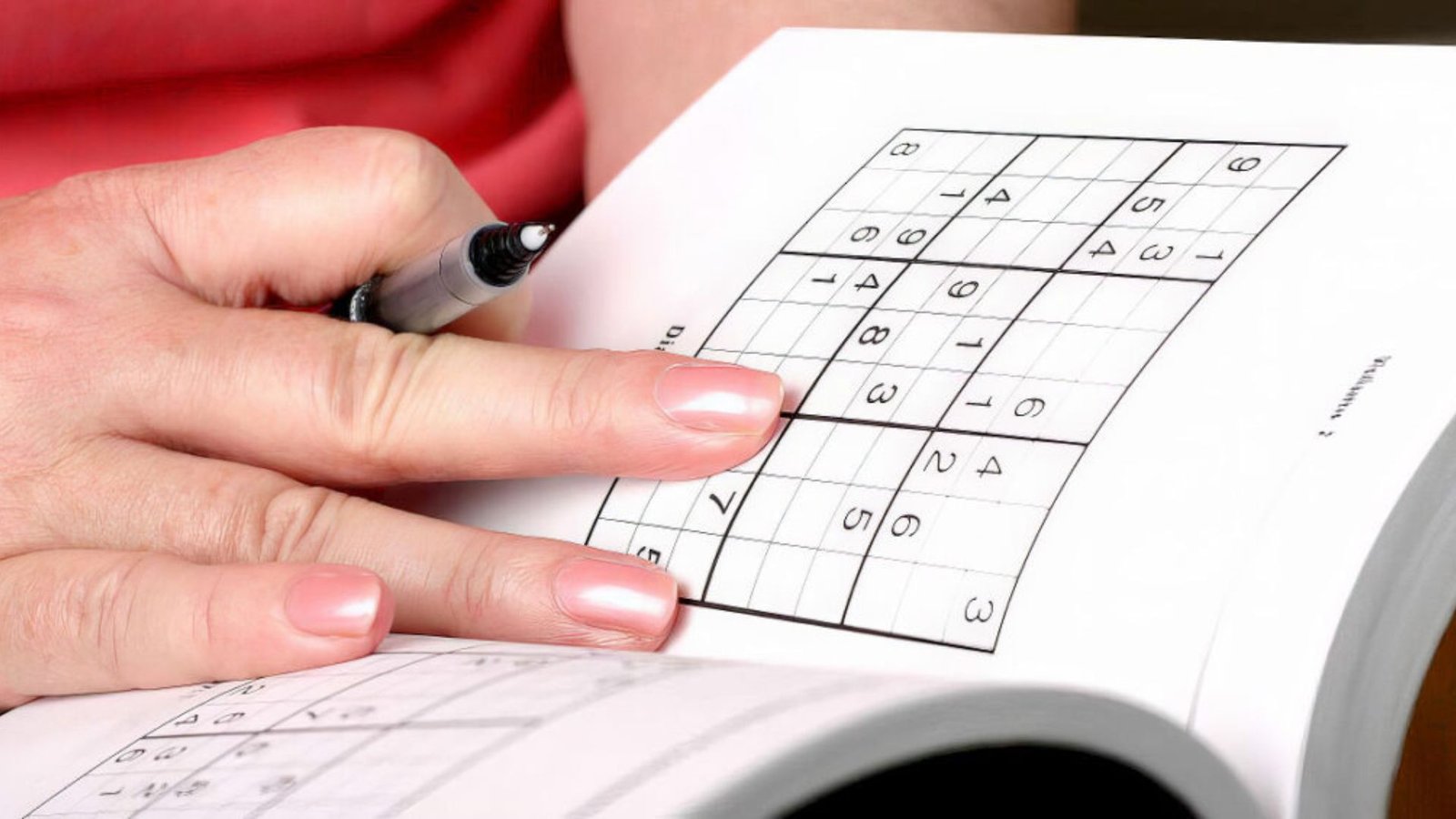Logic puzzles are an excellent way to sharpen your brain, improve problem-solving abilities, and enhance critical thinking. These puzzles challenge your mind, help develop reasoning skills, and offer a fun way to keep your mental faculties sharp. Whether you’re looking for something quick and easy or a more complex challenge, there are plenty of logic puzzles to choose from. In this article, we will explore some of the best logic puzzles to boost your mental skills.

1. Sudoku: The Classic Number Puzzle
Sudoku is a number-based puzzle that requires placing digits from 1 to 9 into a 9×9 grid. The challenge is that each number must appear only once in each row, column, and 3×3 subgrid. Sudoku is great for improving logical thinking, pattern recognition, and attention to detail.
Why It’s Great for Your Brain:
- Enhances memory: Remembering the placement of numbers and patterns boosts your short-term memory.
- Improves concentration: Solving Sudoku puzzles requires focus and concentration, helping to improve your attention span.
- Increases problem-solving skills: Each puzzle requires you to think critically and strategically to find the solution.
2. Logic Grid Puzzles
Logic grid puzzles involve a set of clues and a grid to fill in. The goal is to use deductive reasoning to match different attributes (like names, colors, and items) to each other. These puzzles require you to analyze information carefully and make connections between seemingly unrelated facts.
Why It’s Great for Your Brain:
- Boosts deductive reasoning: Logic grid puzzles help you improve your ability to make inferences and deductions.
- Sharpens attention to detail: You need to pay close attention to small details to avoid making mistakes.
- Develops organizational skills: These puzzles help you organize information logically, which is useful in everyday problem-solving.
3. Riddles and Brain Teasers
Riddles are a fun way to boost your brainpower. These short puzzles require creative thinking and the ability to look at things from different perspectives. Some riddles are straightforward, while others are more abstract, pushing your mind to think in new ways.
Why They’re Great for Your Brain:
- Stimulates creativity: Riddles challenge you to think outside the box and come up with unique solutions.
- Improves lateral thinking: Many riddles require you to think in non-linear ways, improving your ability to solve problems creatively.
- Enhances verbal reasoning: Riddles often involve wordplay, which improves your ability to understand language and its nuances.
4. Kakuro: The Math Sudoku
Kakuro is often described as a mathematical version of Sudoku. In Kakuro, you fill a grid with numbers based on the sum of the rows and columns. Unlike Sudoku, the numbers in Kakuro can repeat, but they must add up to a specific total. This puzzle requires not just logic but also mathematical skills.
Why It’s Great for Your Brain:
- Improves math skills: Kakuro puzzles help you practice addition, subtraction, and other basic math operations.
- Boosts logical thinking: It requires careful analysis of numbers and their relationships, improving logical reasoning.
- Enhances pattern recognition: Like Sudoku, Kakuro helps you spot number patterns, improving your ability to recognize relationships.
5. Nonogram (Picross): The Picture Logic Puzzle
Nonograms, also known as Picross or Griddlers, are puzzles where you must fill in a grid to reveal a picture. Each row and column has a set of numbers that tell you how many consecutive squares in that row or column should be filled. This puzzle combines logic and visual thinking.
Why It’s Great for Your Brain:
- Improves spatial reasoning: Nonograms challenge your ability to visualize shapes and patterns, which enhances spatial reasoning.
- Boosts patience and persistence: The puzzles require time and patience to solve, teaching perseverance.
- Enhances logical deduction: You need to make deductions about which squares to fill based on the numbers in each row and column.
6. Einstein’s Riddle
Einstein’s Riddle is a famous logic puzzle that involves a series of clues to figure out who owns a fish. It’s a challenging puzzle that requires careful analysis and logical deductions. It’s often said that only 2% of people can solve it, making it a great test of your logic and reasoning skills.
Why It’s Great for Your Brain:
- Challenges deductive reasoning: The puzzle requires you to make conclusions based on given facts, helping you improve reasoning skills.
- Improves logical thinking: Each clue builds on the previous one, forcing you to think logically step by step.
- Boosts problem-solving skills: You’ll need to piece together clues in the right order, which sharpens your problem-solving abilities.
7. Logic Puzzles with A-B-C Patterns
In these puzzles, you’re given a series of letters (or numbers) that follow a pattern, and your job is to figure out what comes next. These types of puzzles can involve identifying arithmetic, alphabetical, or geometric patterns, which challenges your ability to recognize sequences and make predictions.
Why It’s Great for Your Brain:
- Enhances pattern recognition: These puzzles train your brain to recognize patterns and relationships in data.
- Improves predictive reasoning: You learn to predict the next element in a sequence based on logical deductions.
- Boosts critical thinking: Identifying and understanding patterns helps strengthen your critical thinking abilities.
8. The 8-Puzzle Problem
The 8-puzzle problem is a sliding puzzle where you need to arrange a set of 8 numbered tiles into the correct order. It’s a challenging puzzle that requires spatial reasoning and problem-solving skills.
Why It’s Great for Your Brain:
- Improves spatial reasoning: You must visualize and plan each move in advance to successfully solve the puzzle.
- Enhances planning skills: You’ll need to think ahead and make moves that bring you closer to the correct arrangement.
- Boosts problem-solving ability: The 8-puzzle problem requires a strategic approach, making it great for sharpening your overall problem-solving abilities.
9. The Tower of Hanoi
The Tower of Hanoi is a classic puzzle where you need to move a set of disks from one pole to another, following certain rules. It requires logical thinking, planning, and strategy to complete the puzzle with the fewest moves.
Why It’s Great for Your Brain:
- Enhances problem-solving skills: The puzzle requires a clear strategy and logical decision-making to solve.
- Boosts strategic thinking: You must plan several moves ahead to successfully complete the puzzle.
- Improves patience and perseverance: The puzzle can be tricky, requiring persistence and patience to complete.
10. The Bridges Puzzle (Kruskal’s Algorithm)
The Bridges puzzle involves finding the shortest path to connect several points on a map by crossing bridges. The goal is to connect all points with the fewest bridges while following specific rules. This puzzle challenges your reasoning and spatial skills.
Why It’s Great for Your Brain:
- Improves graph theory understanding: The puzzle helps you understand basic concepts in graph theory and algorithms.
- Boosts logical reasoning: You’ll need to think about how different paths and connections relate to each other.
- Enhances spatial problem-solving: Solving this puzzle requires spatial reasoning to find the most efficient route.
Conclusion
Logic puzzles are a fantastic way to exercise your brain and improve your mental skills. From number-based puzzles like Sudoku to brain teasers that test your deductive reasoning, there are endless options to challenge your mind. Whether you’re solving a simple riddle or tackling a complex mathematical puzzle, each logic puzzle offers a unique opportunity to boost your critical thinking, problem-solving, and cognitive abilities. So, start solving today and watch your mental skills improve over time!



